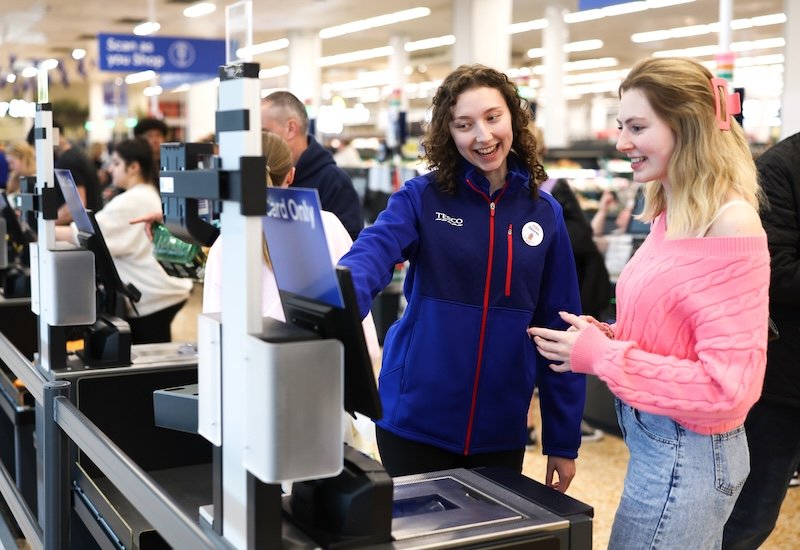London Tech Week: Tesco and Unilver on how innovative technologies are changing supply chains

(Photo credit: Retail Technology Innovation Hub)
Source: Retail Technology Innovation Hub
As global conflicts, extreme weather and changing consumer behaviour put pressure on supply chains, a London Tech Week panel of leaders from Tesco, Unilever and DHL shared how they are using new technology to mitigate risks and increase efficiency.
“In the food industry there is very minimal margin for error,” Kuru Subramaniam, Head of Product at Tesco told delegates. “Even if a disruption is expected, we cannot afford to stockpile.” He explained this makes any disruption to supply chains very difficult for the retailer to manage. “There is a huge opportunity for us to build something that can predict and sense disruptions.”
Francis Castro, Vice President of Global Customer Operations at Unilever, said geopolitical issues have become a prominent issue in recent years. This includes the recent tariff announcements from the US and the outbreak of war in several regions.
Increasingly unpredictable climate is also a concern for Unilever. “Our ice cream business is incredibly dependent on warm weather,” Castro said. Climate change is making weather harder to predict and unseasonably warm or cold seasons more likely.
Saul Resnick, CEO of UK and Ireland at DHL Supply Chain, said global disruption also presents an opportunity for DHL. The logistics company built its 360 platform, which predicts impacts on supply chains. The company is also using generative AI to forecast changes and potential disruptions.
DHL is also experimenting with digital twins, which create a virtual double of an object or system and observe its lifespan, helping companies to plan ahead and make info. “It’s still in its infancy,” Resnick said of the technology.
However, Resnick also cautioned that in the years since the pandemic many companies have started to revert back to previous practices. “Memories are short,” he said. “Companies might stock pile ‘just in case’ but if disruptions don’t happen that stockpile is costing them money and they will revert back to doing whatever makes financial sense.”
Looking ahead, the panel agreed that a move toward more collaborative supply chains should be key. “We need to break up siloes,” Castro explained. He said this would also be important in increasing transparency and sustainability.
“You’re only as resilient as your most vulnerable partner,” Tesco’s Subramaniam added. “It’s important to take everyone on the journey.”
Resnick also cautioned that in the event of disruptions, such as those seen at department store M&S in recent weeks, customers are looking for a quick response. “Consumers will only be sympathetic to a point - their tolerance will run out,” he said.
